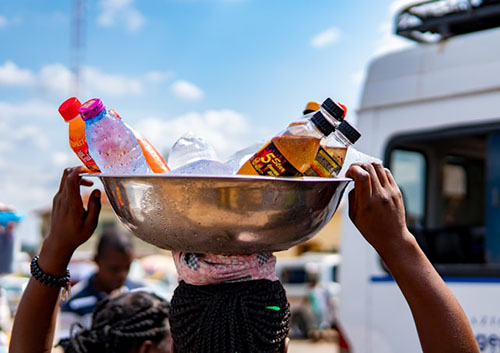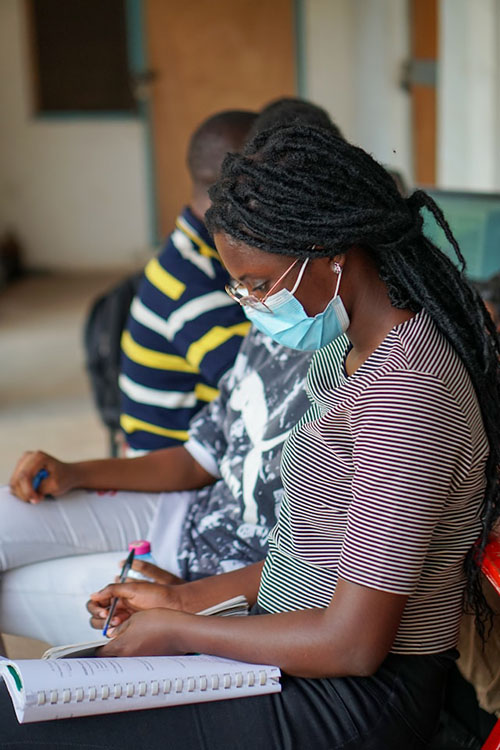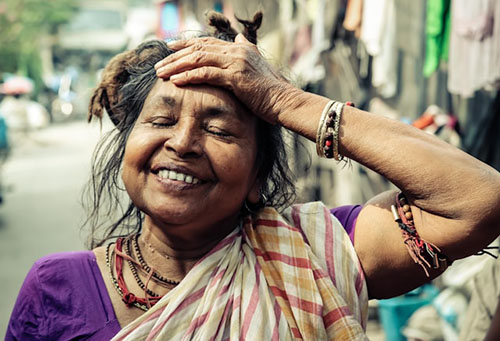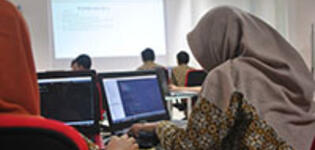Blog
Decoding development – insights from UNU-WIDER's synthesis process and beyond
At UNU-WIDER, we undertake our work explicitly within the context of an emergent strategy designed to maximize the impact of our research findings. We operate based on a theory of change that outlines how research eventually translates into improved development outcomes for the world’s most vulnerable populations.
 In 2023, we published the report Towards peace, decent work, and greater equality to guide policy efforts to achieve the United Nations Agenda 2030. This report synthesizes the key messages and core findings of 30 distinct research projects undertaken by UNU-WIDER between 2019 and 2023. Our goal in producing and releasing the report was to assess the more than 800 research studies published in the WIDER Working Paper Series during our work programme on Transforming economies, states, and societies and to communicate a concise distillation of the most policy-relevant messages.
In 2023, we published the report Towards peace, decent work, and greater equality to guide policy efforts to achieve the United Nations Agenda 2030. This report synthesizes the key messages and core findings of 30 distinct research projects undertaken by UNU-WIDER between 2019 and 2023. Our goal in producing and releasing the report was to assess the more than 800 research studies published in the WIDER Working Paper Series during our work programme on Transforming economies, states, and societies and to communicate a concise distillation of the most policy-relevant messages.
The synthesis report highlights opportunities for action in three core areas: building peace, providing decent work, and addressing inequalities. The work that led to this report was a monumental undertaking involving more than 1800 researchers from 85 nations and countless institutions worldwide.
Building peace
 Early on, it was clear that UNU-WIDER’s most important contributions address major contemporary challenges. Our research on how to build and maintain peace in conflict-affected settings emphasizes the need for sustained and ongoing efforts which can transcend the truncated timelines common to donor-funded projects, incumbency terms, and foreign aid cycles.
Early on, it was clear that UNU-WIDER’s most important contributions address major contemporary challenges. Our research on how to build and maintain peace in conflict-affected settings emphasizes the need for sustained and ongoing efforts which can transcend the truncated timelines common to donor-funded projects, incumbency terms, and foreign aid cycles.
Our work underscores how post-conflict prospects for peace are shaped ‘after the guns are silenced’ and are affected for years to come by the legacies of violent conflict. This creates a related need to build both capable and legitimate states and effective civil society at both local and national levels.
Two key messages emerge from our research on peacebuilding.
- First, efforts that focus on the capacity of state actors to provide for communities’ legitimate needs—such as economic security, meaningful political participation and representation, and human rights—are more likely to succeed.
- Second, civil society is a critical ally in the formation and maintenance of a just peace, suggesting that peacebuilders must consider strategies that strengthen state capacity and civil society actors in tandem, while supporting autonomous institution-building efforts at local and national levels.
Decent work
Across Global South countries, informal workers often comprise a majority of the workforce but remain underrepresented in efforts to improve workers’ quality of life. An important lesson from our work on COVID-19 is that social protection programmes across the Global South do not provide broad enough coverage to protect a substantial portion of the working poor in normal times, let alone during crises.
Our research indicates that formalizing informal occupations can improve access to existing social insurance by turning informal workers into qualifying formal workers, but the success of formalization is moderate at best. Extensive new empirical work documents the low transition rates to formal employment for vulnerable informal workers. And while policy actions can improve these transition rates—particularly by targeting upper-tier informal wage workers and their employers—an obvious conclusion is that there is a need for more inclusive social policies and a new social contract with informal workers.
Women, especially, are systematically overrepresented in the worst-paid jobs with the least protections. We find that, conditional on individual and household characteristics, women are 7 percentage points more likely to be in vulnerable employment than men across the Global South. A key driver of gender gaps is the different experiences of marriage and parenthood that women face. Our studies find that mandating and expanding family leave policies can reduce gender gaps in both labour force participation and pay. It also increases formal employment for women. Ensuring equal access to other rights and opportunities—such as property rights and credit—further supports improved outcomes for women.
Greater equality

Our research on inequalities, consistent with UNU-WIDER’s history of work in this area, is far reaching. We report new understandings of global trends in within- and across-country income inequality. These insights are made possible by a World Income Inequality Database (WIID) expansion—which we have hosted and maintained for close to two decades. The WIID Companion makes WIID data comparable across countries and over time for the first time. It also includes an estimate of the complete global income distribution and is a critical tool for monitoring progress on reduced income inequality globally.
A key finding is that while global income inequality trended downward for nearly 30 years, the burden of this progress was born mostly by the large and populous economies of India and China, whose rapid economic advancement contributes to the large reductions in between-country inequality. Further progress now relies on individual countries to address ongoing within-country income inequality.
Our research findings also suggest that high levels of inequality are strongly correlated with lower human development index (HDI) scores. This means inequality is associated with lower society-wide levels of education, public health and life expectancy, and economic performance. To combat inequality, governments need to address the long-term structural inequalities between social groups in their countries, continue to develop efficient and fair tax systems, and implement well-funded redistributive social programmes.
We also report on the relative success of public actions to redress inequalities. Our Affirmative Action Database documents global policy efforts to address ethnic inequalities; we report on several successful actions by revenue authorities in sub-Saharan Africa to improve tax systems and generate more revenue for public investments; and we provide estimates of the next-day impact of proposed social transfers on poverty and inequality levels.
Taken together, the key message of our work on inequality is that with enough fiscal space, Global South countries can still achieve the aspirations of SDG 10: Reduced inequality.
Next steps on the journey from research to impact
It took nearly two years to produce our report. It was updated multiple times as new findings advanced our understanding of the critical issues in economic development today. What is not covered in the report has also been disseminated through many conferences, events, research papers, articles, and briefs. In 2023, our findings played a critical role in conversations at the United Nations—in panel discussions hosted with regional economic commissions across Africa, Asia and the Pacific, and Latin America and the Caribbean, as well as the Department of Economic and Social Affairs in New York.
In the years ahead, we hope this work contributes to broader understanding and inspires changes to improve the lives of those in need, by promoting sustainable and equitable development for all.
This was a feature article in the 2023 UNU-WIDER Annual Report. Explore the full report here.
Timothy Shipp is a Communications Associate at UNU-WIDER with a focus on inequality research. He is the managing editor of the WIDERAngle and holds a master’s degree in Global Development Policy from Boston University.
The views expressed in this piece are those of the authors, and do not necessarily reflect the views of the Institute or the United Nations University, nor the programme/project donors.
 Join the network
Join the network

